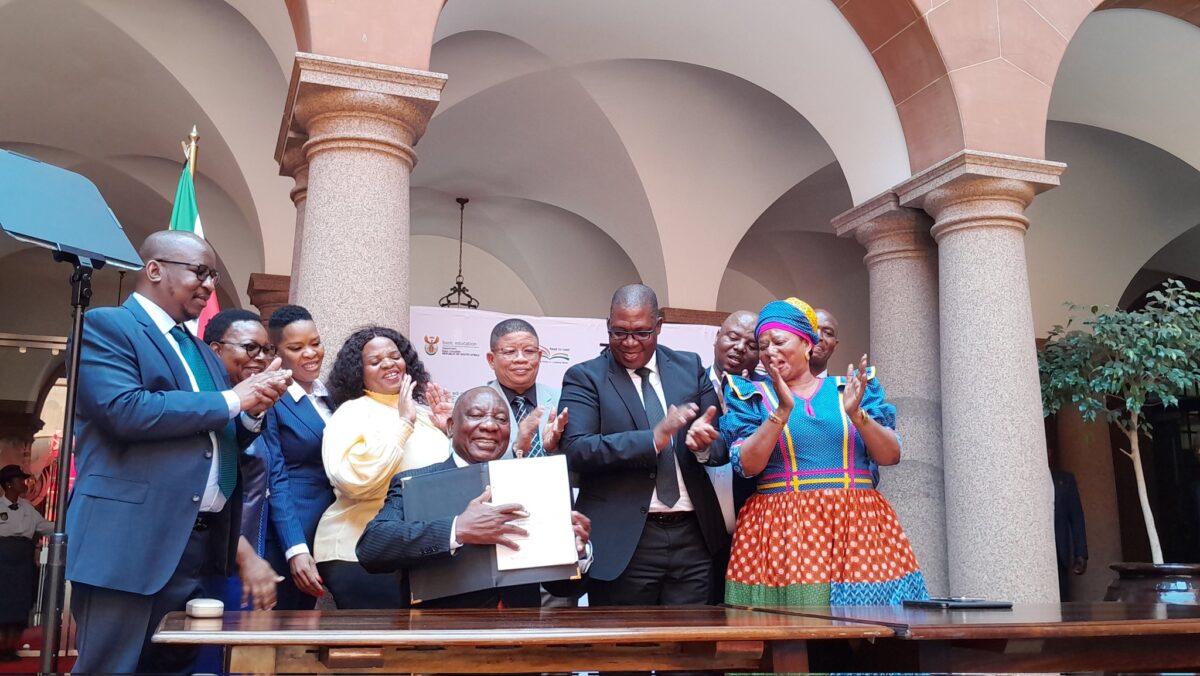
DA to submit court papers challenging the BELA Bill
Although the DA is part of the GNU, it remains opposed to the BELA Bill and has confirmed that it will take the issue to court.

The Democratic Alliance (DA) has directed its lawyers to draft court papers contesting both the process that led to the adoption of the Basic Education Laws Amendment (BELA) Bill and its content, citing constitutional grounds.
Despite opposition, President Cyril Ramaphosa signed the Bill into law at the Union Buildings in Tshwane on Friday, 13 September.
DA PREPARES TO CHALLENGE BELA BILL IN COURT
The DA has always been opposed to the BELA Bill and labelled it as an attack on mother-tongue education.
The party also said signing the Bill into law threatens the Government of National Unity (GNU). However the party will not exit the GNU.
Basic Education minister Siviwe Gwarube who is a DA member boycotted the signing ceremony citing concerns about the constitutionality of the language policies and the compulsory admission of learners to Grade R.
“Parliament must be allowed to fix what is currently wrong with the Bill so that millions of learners across the country can access and receive quality education for a better South Africa,” the former DA chief whip in Parliament said.
PRESIDENT TO CONSULT ON ‘CONTROVERSIAL’ CLAUSES
During the signing ceremony, Ramaphosa acknowledged the complaints from fellow GNU members.
He said he has engaged with them and will consult on clauses 4 and 5 of the Bill which are a concern.
“In the spirit of cooperation and meaningful engagement, I have decided to delay the implementation date for clauses 4 and 5 of the Bill by three months.
“This will give the parties time to deliberate on these issues and make proposals on how the different views may be accommodated. Should the parties not be able to agree on an approach, then we will proceed with the implementation of these parts of the Bill,” Ramaphosa said.
DA leader John Steenhuisen said this means that if there is no agreement, the ANC will proceed with implementing the clauses that empower provincial departments to over-ride school governing bodies on the issue of the language policy of schools.
“The DA rejects this threat by the President. We regard his approach as contrary to the spirit of the Statement of Intent that formed the foundation of the GNU, which requires the participating parties to reach “sufficient consensus” on divisive issues,” he said.
FREEDOM FRONT PLUS WELCOMES CONSULTATION
Freedom Front Plus leader Pieter Groenewald also welcomed the consultation window that Ramaphosa will open.
Gornewald said the law was hastily steamrollered through the parliamentary process just before the general elections, and the fact that electronic education systems are not addressed at all makes it obsolete from the outset.
“The law will cause needless uncertainty and disputes about clearly established rights and responsibilities relating to Basic Education. In addition, the recognition of the right to home-schooling is undermined by bureaucratic requirements.
“During the upcoming talks, the FF Plus will do everything in its power to restrict the implementation of the objectionable parts of the law,” he emphasised.
